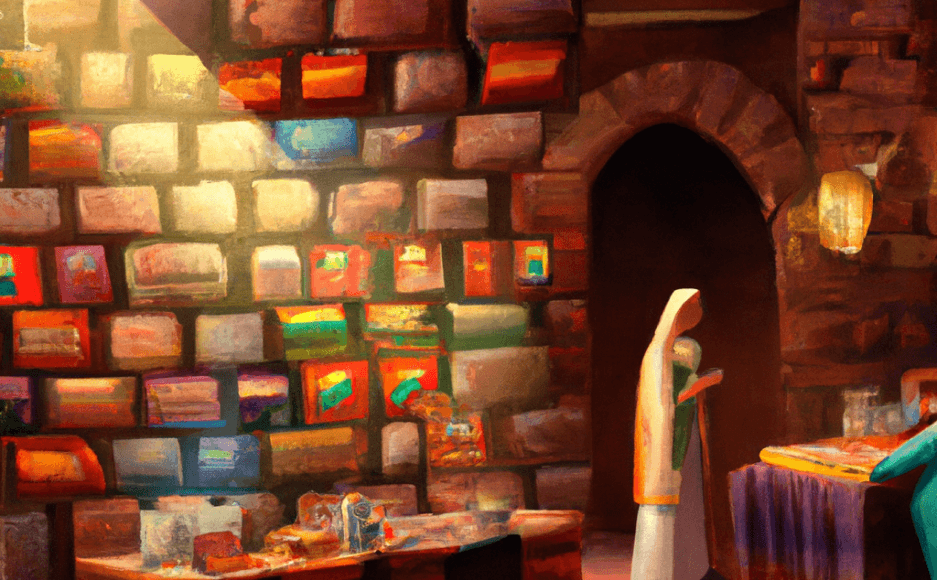NFT
NFT Marketplace
What is an NFT Marketplace?
- NFTs, or non-fungible tokens, are a type of digital asset that cannot be replicated— each being the only one of their kind.
- Since NFTs are a type of smart contract, they can perform functions such as being video game collectibles or a lifetime ticket purchase, as seen in the recent case of Coachella stepping into the cryptospace.
- NFTs are a fun way to bring personality to any digital portfolio, as they can be used in themes, profile pictures, and other creative ventures.

What Are NFTs?
NFTs, or non-fungible tokens, are a type of digital asset that cannot be replicated— each being the only one of their kind.These tokens have a unique signature, called a smart contract, that legitimizes their value and authenticity on the blockchain and marketplace on which they get minted. After minting, these NFTs exist on the NFT marketplaces that we've come to appreciate over the past few years.
Several sites already cater to the buying and selling of NFTs, with some of the most popular ones being OpenSea, Rarible, Magic Eden, and SolSea, among others.
What Is An NFT Marketplace?
The primary function of an NFT marketplace is for people to buy, sell, and engage with NFTs. These digital stores record transactions and facilitate the transfer of funds.Several NFT marketplaces are based around specific blockchains that support the assets they sell. Most NFT markets like Coinbase NFT, Async Art, and Makers Place are based on the Ethereum blockchain. In contrast, others like Binance NFT, Magic Eden, and Cardano operate on BSC, Solana, and Cardano. To purchase an NFT from a marketplace, you must have appropriate storage space for it and the specific type of currency required for the transaction. That's where crypto wallets come in.
How Does It All Work?
To purchase, sell, or mint an NFT, you must own the appropriate cryptocurrency and a digital (crypto) wallet to ensure you buy the correct native cryptocurrency for the NFT marketplace. Then you have to create an NFT market account that trades in your choice of the coin you want, allowing you to search NFTs by what you're interested in according to rarity, artists, cost, trends, and more.Remember that there are two main ways to buy NFTs: at a set price or an auction. Both purchasing options require a transaction fee, called the gas fee, which is additional to the listing price. Once the exchange has been made, you are the sole owner of that NFT, as verified by the smart contract attached to your digital asset. You can either keep your NFT within your marketplace account (on the exchange) or move it to a digital wallet for storage and safekeeping purposes.
Minting NFTs
For an NFT to become a tradable store of value, it first needs to be minted. This is the process of converting a digital file into a crypto collectible, which often comes with a transaction fee. The price of fees depends on the network, file size, conversion costs, and listing costs to mint.It represents a democratic approach to ownership. Each buyer is given access to an NFT's history and the identity of the artist who minted it, making it extremely difficult to forge fake assets.
How are NFTs Valued?
The overall value of an NFT currently depends on several factors, but for this article, we'll list the three most common.-
Notoriety of the Artist
Are they well-known for previous, non-NFT art? Are they a celebrity, famous singer, or successful business owner? If yes, the price for a particular digital asset created or owned by these individuals will increase if the project has high utility and the creator of the project follow through on their promises. -
Utility
Since NFTs are a type of smart contract, they can perform functions such as being video game collectibles or a lifetime ticket purchase, as seen in the recent case of Coachella stepping into the cryptospace. -
Liquidity
This refers to how quickly an asset can be converted into cash. NFTs with high trading volumes fall under the category of investments with relatively high liquidity.
NFTs are a fun way to bring personality to any digital portfolio, as they can be used in themes, profile pictures, and other creative ventures. We hope this article has helped you discover the potential of NFTs and their existing market spaces.
Don't forget to ensure you are trading in the cryptocurrency the NFT has been minted for. Check out artists and support them through your purchase of NFTs. Remember that investing comes with risks, so make sure to do your research before deciding to buy a stake in any venture.
Have fun, stay safe, and keep exploring the promising new world of NFTs!
*All blogs are opinion pieces and do not necessarily reflect the views of PyxelChain™ Technology Corporation
Legal
Terms of Service© 2022 PyxelChain. All Rights Reserved.
PyxelChain emphasizes customer privacy and control through the use of blockchain technology. We are here to help educate individuals on the safest methods of utilizing crypto and what it means to "decentralize" the practices of the Internet.
